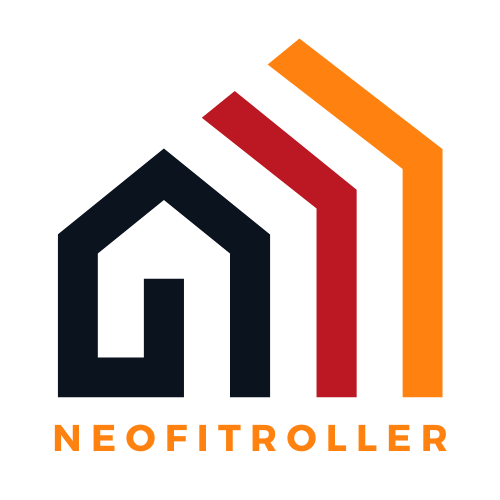Table of Contents
ToggleBeing a landlord can feel like juggling flaming torches while riding a unicycle. It’s a balancing act filled with tenant requests, maintenance headaches, and the occasional late rent payment that feels like a personal affront. But what if there’s a way to turn those challenges into manageable tasks? Enter landlord self-help—your new best friend in the world of property management.
Understanding Landlord Self Help
Landlord self-help refers to methods landlords use to manage their properties effectively. Solutions exist for issues like late rent, maintenance requests, and tenant disputes.
What Is Landlord Self Help?
Landlord self-help encompasses strategies and tools that empower landlords to address challenges without relying solely on outside assistance. Examples include online payment portals, maintenance software, and detailed communication logs. These resources facilitate timely responses to tenant needs and streamline property management processes. Utilizing self-help tools can significantly increase a landlord’s efficiency.
Importance of Landlord Self Help
Landlord self-help plays a crucial role in enhancing property management effectiveness. By adopting self-help methods, landlords save time and reduce the likelihood of disputes. Efficient processes enable proactive responses to tenant concerns, leading to higher satisfaction rates. Additionally, self-help tools often lower costs by minimizing the need for professional services. Overall, these strategies contribute to more successful and stress-free property management.
Types of Landlord Self Help

Landlord self-help encompasses various methods and strategies. This empowers landlords to manage properties efficiently while addressing common issues.
Common Methods Used
Online payment portals streamline rent collection. Maintenance management software enables quick responses to repair requests. Effective communication channels foster transparency between landlords and tenants. Comprehensive record-keeping assists in tracking rent payments and maintenance history. Automation tools handle reminders for late payments, reducing tenant disputes. Document templates provide essential guidance for lease agreements and eviction notices.
Legal Considerations
Understanding local landlord-tenant laws remains crucial. Landlords must comply with regulations regarding eviction processes and tenant rights. Familiarity with lease agreements ensures that both parties understand their obligations. Adequate documentation strengthens a landlord’s position in disputes. Knowledge of fair housing laws protects against discrimination claims. Maintaining updated records helps support actions taken in case of legal issues.
Benefits of Landlord Self Help
Landlord self-help provides numerous advantages that streamline property management and enhance tenant relationships.
Cost Savings
Cost savings rank among the top benefits of landlord self-help. By minimizing the need for external property management services, landlords save on fees typically associated with those services. Utilizing online payment portals reduces risks of errors and late fees. Maintenance management software allows for quick fixes, which cuts repair costs over time. Keeping detailed communication logs prevents misunderstandings, reducing potential legal expenses. Automation tools can send reminders for rent and maintenance requests, eliminating the need for costly collections agencies. With these strategies, landlords can significantly decrease operating costs while maintaining efficient property management.
Increased Tenant Satisfaction
Increased tenant satisfaction represents another key benefit of landlord self-help. Landlords who implement effective communication channels foster transparency and trust. Quick responses to maintenance requests enhance the living experience for tenants. Online payment systems allow for convenient transactions, making it easier for tenants to pay rent on time. Streamlined processes contribute to stronger tenant-landlord relationships. Satisfied tenants are more likely to renew leases and recommend properties to prospective renters. Ultimately, a focus on tenant satisfaction leads to longevity and stability in occupancy rates, benefiting landlords significantly.
Challenges of Landlord Self Help
Landlords face various challenges while attempting to manage their properties effectively. These challenges range from potential legal concerns to maintaining strong tenant relationships.
Potential Legal Issues
Landlord self-help methods can lead to unintended legal complications. Local laws often dictate what actions landlords can take, particularly regarding evictions and tenant rights. Ignorance of these laws may result in costly legal disputes. Compliance with regulations regarding repairs and maintenance is crucial. Failure to adhere to these requirements can lead to penalties or lawsuits. Additionally, issues related to fair housing laws necessitate awareness and diligence. A misunderstanding here can expose landlords to discrimination claims. Thus, landlords must thoroughly understand their legal obligations to minimize risks and ensure smooth property management.
Tenant Relations
Strong tenant relations significantly impact overall property management success. Landlords utilizing self-help tools might overlook the importance of direct communication. Miscommunication can lead to tenant dissatisfaction and increased turnover rates. Establishing open lines of communication fosters trust and prompt responses to tenant concerns. It can be beneficial to utilize feedback systems for ongoing improvements. Addressing maintenance issues quickly can strengthen landlord credibility. Also, consistency in communication supports transparency, enhancing tenant loyalty. Striking a balance between self-management tools and relational strategies can lead to healthier, more stable tenant-landlord dynamics.
Embracing landlord self-help can transform property management into a more efficient and rewarding experience. By utilizing modern tools and strategies landlords can tackle challenges head-on while fostering positive relationships with tenants.
Streamlined processes not only save time and money but also enhance tenant satisfaction. A proactive approach to communication and maintenance can lead to stronger tenant loyalty and higher lease renewal rates.
Balancing self-management techniques with a focus on tenant relationships is crucial for long-term success in property management. Through informed decision-making and effective tools landlords can navigate the complexities of their role with confidence.








